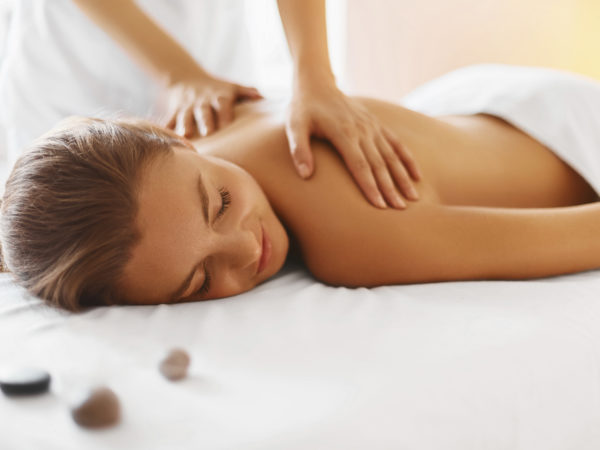Massage For Stress

Here’s a healthy goal with the added bonus of feeling luxurious: get a monthly massage. Receiving a professional massage is relaxing and has numerous health benefits: It can help manage stress levels, reduce blood pressure and heart rate, ease sore muscles and stiff joints, lower levels of stress hormones, and enhance immune function.
Many types of massages are available at a wide range of prices. Check your local health food store for short-duration neck and shoulder massages (perfect on your lunch break or during a busy day of errands), try out student massages at local massage schools, or book packages of massages to save money.
Massage is a touch therapy that I highly recommend. It can be relaxing and therapeutic for many health conditions including back issues, muscle strains or osteoarthritis. The healing touch of massage can also boost levels of endorphins and serotonin – the body’s natural painkillers and mood regulators – and increase blood circulation.
Those with anxiety, depression or eating disorders can take advantage of the effects massage has on the mind – massage has proven effective for reducing pain, anxiety, stress, and depression in patients with a wide range of medical problems.
Many forms of massage therapy are available, and it always pays to ask a massage therapist what types of therapy he or she has studied. One that I like is trigger-point therapy (also known as neuromuscular therapy). This technique applies concentrated pressure to so-called trigger points, which are areas of chronic contraction in the muscle that may feel like lumps or knots. They are often painful and can sometimes lead to pain in other parts of the body. Trigger-point therapy applies sufficient pressure to these areas to relax the muscles, and it stretches the surrounding tissue – known as fascia – to help prevent recurrence.
Today’s Health Topics
Editor's Pick
Health Focus
Ask Dr. Weil's Q&A
| sponsor |
| Visit Our Origins Shop! |
| Dr. Weil believes inflammation is the root cause of visible skin concerns like irritation. He also believes mushrooms have the power to fight irritation. That's why he partnered with Origins to create these Mega-Mushroom Formulas. |










